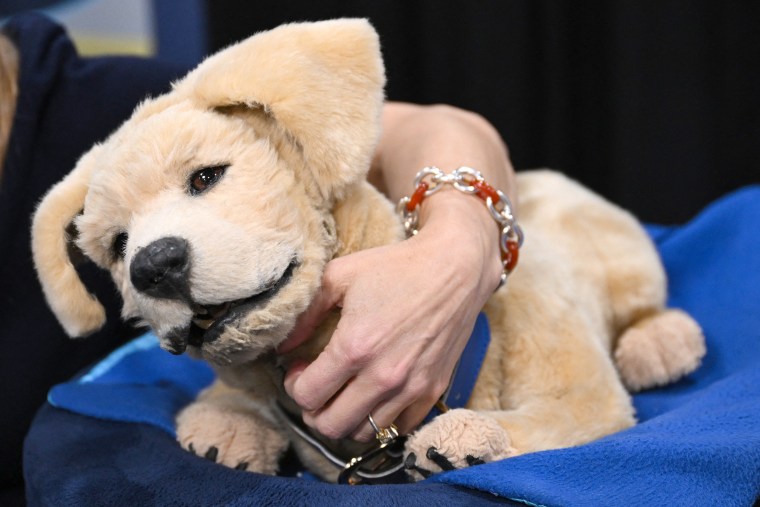
Big and small IT companies alike are presenting ambitious ideas for AI-powered goods that may soon find their way into our daily lives. Unless tariffs cause them to stumble.
Less than two weeks before Donald Trump returns to the White House on a campaign pledge to significantly increase tariffs, also known as import duties or levies, on goods entering the United States from overseas, the head of the Consumer Technology Association, which is hosting its annual electronics show in Las Vegas, made that statement.
The president-elect has pledged sweeping taxes of 10% to 20% on goods from almost every other nation, a 25% tariff on imports from Mexico and Canada, and surcharges of at least 60% on items arriving from China.
Trump declared on the campaign trail that tariffs are the most beautiful word in the English dictionary, promising to encourage domestic production and bring businesses’ operations back to the United States from overseas.
However, economists believe that since businesses that manufacture or source parts abroad pass on greater costs to buyers, the most likely result of higher tariffs would be price hikes for consumers. Officials at the Federal Reserve are also considering worries that Trump’s trade policies would increase inflation.
One of the tech startups at CES is Yarbo, which produces a robot for lawn maintenance that can map a yard and blow snow on its own. Additionally, it is modular, so in the spring and summer it may be used as an autonomous lawnmower.
The product is made in China by the New York-based firm. Trump’s tariff strategy, according to co-founder Kenneth Kohlmann, is a major concern for Yarbo.
If it does occur, we have provisions for it. Kohlmann said that the corporation might change its supply chain to lessen the impact of any Trump action, but it’s anyone’s guess what tariffs will be applied to what.
However, a lot of small firms, including those that survived the tariffs Trump placed during his first term in office—the majority of which President Joe Biden maintained—say they have little to no ability to adapt to more levies. Some operators changed their 2025 plans in the weeks following the election, placing last-minute orders or searching for ways to save costs.
Additionally, even while some analysts have expressed doubt that Trump will implement all of his proposed trade policies, the CTA, which advocates for digital businesses that cater to consumers, has already warned that increased tariffs will have a negative impact on consumers.
According to CTO CEO Gary Shapiro, it’s like worrying about the weather: Everyone talks about it, but no one can do anything about it. Still, he said, “We will have a Great Depression if you have the kind of tariffs that President Trump was talking about.”
Trump transition spokesperson Karoline Leavitt said in a statement that the president-elect will “fix and restore an economy that puts American workers first by re-shoring American jobs, lowering inflation, raising real wages, lowering taxes, cutting regulations, and unshackling American energy.”
According to a CTA research published in October, Trump’s proposed tariffs would raise the average cost of computers by $357, cellphones by $213, and televisions by $48.
Shapiro made reference to the round of retaliatory levies that Washington and Beijing threw at one another during Trump’s first term when he stated, “If countries see that we’re putting tariffs on the products, they’re going to reciprocate.” They will take retaliatory action against us, which is detrimental to innovation as well as Americans.
Companies in a variety of sectors have to adjust to the tariffs. The Biden administration even took steps to increase tariffs further in some areas, such as electric vehicles, in order to allay worries that Chinese green technology was outcompeting American companies.
The CTA is in favor of less regulation under the new government, even if it has criticized Trump’s tariff plan.
According to Shapiro, President Trump’s economy will benefit greatly from increased investment in smaller companies.
The group also supports the appointment of Lina Khan, a Biden appointee, to run the Federal Trade Commission. The FTC tried to combat big mergers under Khan, but it was unable to persuade the courts to halt significant deals, such as the Microsoft-Activision Blizzard agreement. Trump declared that a Republican FTC commissioner named Andrew Ferguson will take her place.
There are grounds to think that Trump might not end up enacting all of his proposed tariffs.
The president-elect told NBC News Kristen Welker last month that when properly applied, tariffs “are a very powerful tool, not only economically, but also for getting other things outside of economics.” He has stated that he views duties as a negotiating weapon to get assistance from other nations in limiting immigration or combating the trafficking of fentanyl.
As a result, some tech companies are currently unsure of how to get ready.
Regarding his Yarbo snowblowers, Kohlmann stated, “I don’t really think they’ll be applied to a product like this.” However, they may be.
Note: Every piece of content is rigorously reviewed by our team of experienced writers and editors to ensure its accuracy. Our writers use credible sources and adhere to strict fact-checking protocols to verify all claims and data before publication. If an error is identified, we promptly correct it and strive for transparency in all updates, feel free to reach out to us via email. We appreciate your trust and support!
